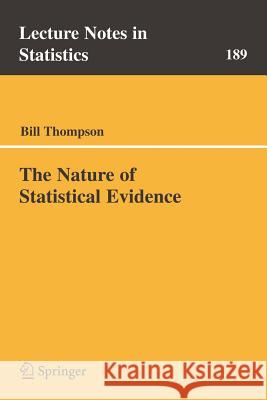The Nature of Statistical Evidence » książka
The Nature of Statistical Evidence
ISBN-13: 9780387400501 / Angielski / Miękka / 2007 / 152 str.
Our motivation for writing this book was a dissatisfaction with the many books with titles hke Foundations of Statistics. These books provide a needed description of the subject with examples of various statistical methods; but they do not satisfy the discerning reader because they do not explain why certain conclusions may be drawn from certain data and they do not discuss how statistics, the subject, meshes with the scientific process. We naively set out to fill in these gaps, but the situation is not so simple. What is desired is a tool the one true statistics which can be applied to data with certainty to justify conclusions, but what is available, in fact, are various competing theories of statistics. The careful reader may correctly point out the relation of this manuscript to po- modem epistemology, a philosophy which emphasizes that all human knowing in fields as diverse as religion and science is culture dependent and that therefore "truth" is not absolute. Take, for example, the "truths" of Christianity and Islam wars have been fought over their differences. In the field of statistics there are, for example, Bayesians and sampling theorists. Carson (2003) states, "Surely it is better, postmodems tell us, to encourage insights that flow from many different perspectives. . . " In statistics, postmodernism is manifest at two levels. First, the findings of statistical applications are not about the true state of nature but about models of experiments on nature."











